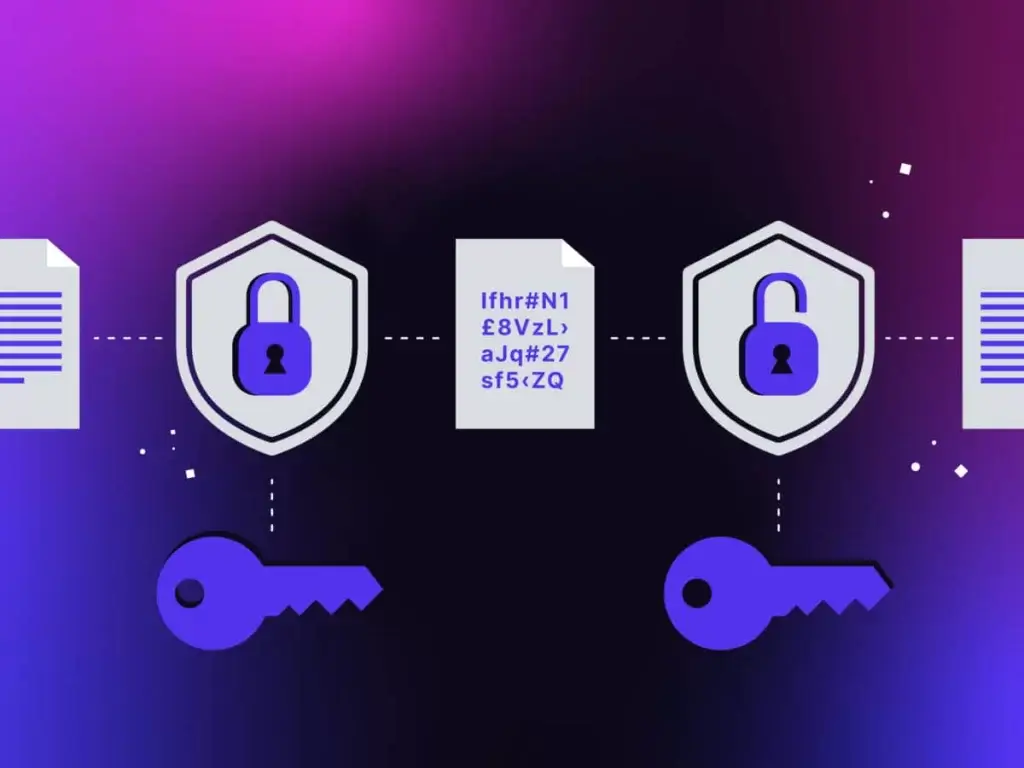Introduction: The Growing Importance of Cybersecurity in 2024
In today’s rapidly evolving digital landscape, the need for robust cybersecurity measures has never been greater. As we enter 2024, cybercriminals are developing more sophisticated techniques, and businesses and individuals must stay vigilant to protect their sensitive information. Implementing effective cybersecurity tips is no longer optional—it is a necessity to safeguard against data breaches, identity theft, and other malicious activities.
With the increasing number of devices connected to the internet, the attack surface for hackers is growing. From smart homes to personal devices, each connection represents a potential vulnerability. This makes cybersecurity tips crucial for ensuring that your data, privacy, and online activities remain secure. In this blog, we will explore the top 5 cybersecurity tips to help protect your data in 2024.
Governments and organizations worldwide are also taking stronger measures to enhance cybersecurity regulations. As a result, it is essential for individuals to stay informed and adopt the latest practices to reduce their risk of becoming a victim of cybercrime. By following these cybersecurity tips, you can build a strong defense against the ever-evolving cyber threats of 2024.
Why Data Security Matters Now More Than Ever
In 2024, data has become one of the most valuable assets, and protecting it has never been more critical. Whether it’s personal information, financial data, or intellectual property, sensitive data is constantly at risk of being targeted by cybercriminals. As more services shift online, from banking to healthcare, securing your data is essential for protecting your privacy and preventing financial loss. Implementing cybersecurity tips ensures that you minimize the risk of unauthorized access and data breaches.
The rise of remote work and cloud-based services has also made data security a top priority for individuals and businesses alike. With employees accessing sensitive company data from various locations, the potential for security gaps has increased. This makes it essential to follow cybersecurity tips such as encryption, strong passwords, and regular backups to maintain data integrity.
In addition to individual concerns, large-scale data breaches can have a significant impact on businesses, causing financial damage and loss of customer trust. Following cybersecurity tips is a proactive way to safeguard your personal and professional data, ensuring it remains protected from cyberattacks.
Common Cyber Threats in 2024
As technology advances, so do the techniques used by cybercriminals. In 2024, there are several common threats that individuals and organizations need to be aware of. Phishing attacks remain one of the most prevalent methods used by hackers, tricking users into providing sensitive information. To combat these attacks, users must stay vigilant and follow cybersecurity tips like recognizing suspicious emails and avoiding unsolicited links.
Ransomware attacks have also surged, with cybercriminals locking users out of their systems until a ransom is paid. This type of attack can lead to significant financial losses, but by following basic cybersecurity tips such as regularly backing up data, users can avoid the worst consequences of these attacks.
Additionally, the Internet of Things (IoT) has expanded the number of devices connected to the internet, increasing the potential attack surface for hackers. Smart homes and connected devices are often targeted due to weak security protocols. Adopting cybersecurity tips like using secure passwords and regularly updating device firmware can help mitigate these risks and keep your data safe in 2024.
Tip 1: Use Strong, Unique Passwords
One of the most fundamental cybersecurity tips is to use strong, unique passwords for each of your accounts. Weak or reused passwords are a common entry point for hackers, making it easier for them to access your personal information. In 2024, with the rise of automated hacking tools, it is more important than ever to ensure your passwords are both complex and distinct. A strong password should combine uppercase and lowercase letters, numbers, and special characters to create a combination that is difficult for attackers to guess or crack.
Using a unique password for every account ensures that even if one password is compromised, the others remain secure. This is especially critical given the widespread use of cloud services and the increasing number of online accounts that most individuals maintain. By following cybersecurity tips like using strong and unique passwords, you can significantly reduce the chances of falling victim to a cyberattack.
Moreover, many cybersecurity experts recommend using password managers to help create, store, and manage complex passwords. These tools not only save time but also add an additional layer of security by generating strong, random passwords for every site, keeping your accounts safe from unauthorized access.

How to Create Secure Passwords
Creating secure passwords is a vital part of safeguarding your online accounts, and there are several cybersecurity tips to follow to ensure you’re doing it correctly. A secure password should be at least 12 to 16 characters long and include a mix of letters, numbers, and symbols. Avoid using common words, names, or predictable sequences like “1234” or “password,” as these are among the first combinations that hackers will try.
One effective method is to use a passphrase—a sequence of random words or an easily memorable phrase combined with symbols and numbers. For example, “Mountain*Sky!2024” is a secure password that’s both complex and easy to remember. Additionally, never use the same password across multiple sites. Instead, follow cybersecurity tips by creating a unique password for each account, reducing the risk of multiple accounts being compromised if one is hacked.
If keeping track of multiple complex passwords seems overwhelming, consider using a password manager. These tools can generate and store secure passwords, making it easier for you to maintain strong protection across all your accounts without needing to memorize each one.
The Importance of Two-Factor Authentication (2FA)
Incorporating two-factor authentication (2FA) into your security routine is one of the most effective cybersecurity tips you can follow. 2FA adds an additional layer of protection by requiring not only your password but also a secondary form of verification, such as a code sent to your phone or an authentication app. Even if a hacker manages to obtain your password, they would still need access to the second factor to successfully log into your account.
2FA significantly reduces the likelihood of unauthorized access, making it a crucial step in securing sensitive data like your email, banking, or social media accounts. Many services now offer 2FA as an optional or mandatory feature, and it’s advisable to enable it wherever possible. This added security measure ensures that even if your password is compromised, your data remains protected.
Whether you’re using biometric verification, such as a fingerprint, or a time-sensitive code, enabling two-factor authentication is an essential step in any comprehensive cybersecurity tips strategy. It acts as a failsafe, adding an extra hurdle for potential attackers and giving you peace of mind in a digital world full of threats.
Tip 2: Keep Your Software Updated
One of the simplest yet most effective cybersecurity tips is to keep your software updated. Software developers regularly release updates that patch vulnerabilities and enhance the security of their products. Failing to install these updates can leave your system exposed to potential cyber threats, as hackers often exploit known weaknesses in outdated software. By consistently updating your operating systems, applications, and antivirus programs, you can ensure your devices are equipped to fend off the latest cyber threats.
Cybercriminals frequently scan for outdated systems to target, knowing that vulnerabilities in old software versions provide easy access to your data. Whether you’re using a computer, smartphone, or IoT device, neglecting updates can lead to data breaches and malware infections. Staying proactive with software updates is a simple yet powerful way to implement cybersecurity tips and reduce your risk of becoming a victim of cyberattacks.
In addition to security improvements, software updates often come with performance enhancements and bug fixes, making them beneficial for overall system efficiency. Keeping your software up-to-date is a key element of maintaining a secure and optimized digital environment.

Why Regular Updates Are Crucial for Security
Regular software updates are essential for maintaining robust security. When software companies discover vulnerabilities, they release patches to fix them, ensuring that hackers can’t exploit these weaknesses. By following cybersecurity tips such as installing updates promptly, you can protect your system from known threats. Failing to update your software in a timely manner leaves your devices susceptible to malware, ransomware, and other types of cyberattacks that target outdated systems.
In 2024, cybercriminals are continuously evolving their tactics, and outdated software is one of the most common entry points. Even minor updates often contain critical security patches designed to close loopholes that could be exploited by hackers. By keeping your software current, you minimize the risk of falling prey to these ever-evolving threats and help secure your data and privacy.
Moreover, regular updates not only protect your system but also ensure compliance with industry standards and regulations. Many businesses are required to maintain updated software to avoid legal repercussions related to data breaches. Thus, prioritizing regular updates is a key cybersecurity tip for individuals and organizations alike.
Automatic vs. Manual Software Updates
When it comes to software updates, you generally have two options: automatic or manual. Automatic updates are often recommended as a crucial cybersecurity tip because they ensure that your software stays current without requiring any action on your part. With automatic updates enabled, you can rest assured that your system is consistently protected with the latest security patches. This approach is particularly useful for those who may forget to manually check for updates or for applications that frequently release security patches.
On the other hand, manual updates give you more control over when and how updates are installed. Some users prefer this method to avoid any potential disruptions from automatic updates, such as system reboots or compatibility issues. However, the risk with manual updates is that you may delay the installation of important security fixes, leaving your system vulnerable for longer periods.
Incorporating the best of both worlds, many cybersecurity tips recommend setting critical software, such as antivirus programs and operating systems, to update automatically while manually updating less crucial applications. This approach helps maintain strong security without compromising control over your system.
Tip 3: Be Cautious with Public Wi-Fi
One of the most important cybersecurity tips to keep in mind when using the internet is to be cautious with public Wi-Fi. While convenient, public Wi-Fi networks are often unsecured, making them prime targets for cybercriminals looking to intercept your data. Whether you’re at a coffee shop, airport, or hotel, connecting to a public network without proper precautions can expose sensitive information like login credentials, banking details, and personal messages to hackers. Always exercise caution when using public Wi-Fi to ensure your data remains secure.
Hackers can easily use techniques like man-in-the-middle (MITM) attacks to eavesdrop on public Wi-Fi traffic, gaining access to your private information without you realizing it. Therefore, one of the best cybersecurity tips when using public Wi-Fi is to avoid accessing sensitive sites, such as online banking or personal accounts, unless you are using a secure connection. Additionally, disabling automatic connections to public networks can prevent your device from unintentionally connecting to unsecured hotspots.
To mitigate the risks of using public Wi-Fi, consider using tools like Virtual Private Networks (VPNs) or mobile data when accessing important accounts. These solutions ensure that your online activities remain private, even on untrusted networks.

The Risks of Unsecured Networks
Unsecured public Wi-Fi networks pose significant risks to your cybersecurity. These networks typically lack proper encryption, which means that the data you send and receive is transmitted in plain text and can be intercepted by anyone on the same network. This makes activities like logging into accounts, making online purchases, or sharing personal information particularly dangerous. Hackers often set up fake Wi-Fi hotspots or exploit vulnerabilities in unsecured networks to steal data, passwords, or even infect devices with malware.
One of the most essential cybersecurity tips for dealing with unsecured networks is to avoid performing sensitive tasks unless absolutely necessary. If you must use public Wi-Fi, ensure that the websites you visit are secure (indicated by “https”) and that your device has up-to-date security measures in place. Additionally, turning off file sharing and using a firewall can add extra layers of protection when connecting to public networks.
Being aware of the risks associated with public Wi-Fi is the first step in protecting yourself. Following these cybersecurity tips can help you avoid the dangers of unsecured networks and keep your data safe.
Using VPNs to Safeguard Your Data
A highly effective way to protect yourself on public Wi-Fi is by using a Virtual Private Network (VPN). One of the most recommended cybersecurity tips for safeguarding data on unsecured networks, a VPN encrypts your internet connection, making it virtually impossible for cybercriminals to intercept your data. By routing your online activity through a secure server, a VPN ensures that even if a hacker is monitoring the public network, they cannot see your actual browsing or sensitive information.
VPNs create a secure tunnel between your device and the internet, hiding your IP address and encrypting all data transmissions. This is particularly useful when using public Wi-Fi, where your data is most vulnerable. Whether you’re checking emails, logging into accounts, or making transactions, a VPN offers peace of mind by significantly reducing the risk of data theft. Many reliable VPN services are available, making it easy for individuals and businesses alike to implement this key cybersecurity tip.
In addition to protecting your data, a VPN also helps preserve your privacy by preventing websites from tracking your location and browsing habits. This makes it an essential tool for anyone looking to maintain both security and privacy when using public Wi-Fi networks.
Tip 4: Enable Data Encryption
One of the most effective cybersecurity tips for safeguarding your sensitive information is to enable data encryption. Encryption converts your data into a secure format that can only be accessed by someone with the correct decryption key. This ensures that even if a hacker intercepts your data, they won’t be able to read or use it. Whether you’re storing files locally or sending information over the internet, encryption is a crucial layer of protection that helps keep your personal and professional data secure.
Data encryption is especially important for individuals and businesses handling sensitive information such as financial records, client details, or intellectual property. From securing emails and messages to protecting stored data on your devices, enabling encryption reduces the risk of data breaches and cyberattacks. By following cybersecurity tips like enabling encryption on all your devices and online services, you can protect your information from unauthorized access.
Additionally, encryption is increasingly being built into many modern devices and services, making it easier than ever to implement. Whether through built-in encryption settings or third-party tools, it’s essential to take advantage of this technology to ensure the highest level of data protection.

How Encryption Protects Your Information
Encryption works by scrambling your data into a coded format that can only be unlocked with a decryption key. This process ensures that any intercepted information, whether it’s emails, documents, or transactions, remains unreadable to unauthorized users. As one of the most important cybersecurity tips, encryption adds a powerful layer of defense, making it much harder for hackers to access your data, even if they manage to breach other security measures.
For example, when you use encryption to secure files on your device, only someone with the correct decryption key can open and read them. This is particularly useful for protecting sensitive data stored on laptops, mobile devices, or cloud services. Encryption also plays a critical role in safeguarding data during online transactions, such as when making purchases or accessing banking information. It keeps your data private and secure, reducing the chances of it being compromised by cybercriminals.
In an age where data breaches are becoming more common, enabling encryption should be a priority for anyone serious about protecting their privacy and information online.
Tools and Services for Easy Data Encryption
There are a variety of tools and services available to make data encryption accessible and straightforward for everyone. One of the most recommended cybersecurity tips is to use built-in encryption features on devices such as smartphones, laptops, and tablets. Both iOS and Android devices offer encryption settings that can be easily activated, and Windows and macOS provide full-disk encryption with tools like BitLocker and FileVault.
For online data, services such as encrypted email providers, cloud storage solutions, and messaging apps offer end-to-end encryption. Popular tools like ProtonMail, Google Drive with client-side encryption, and messaging apps like Signal ensure that your data remains private and secure, even during transmission. These tools are designed to make encryption user-friendly, requiring little technical knowledge to set up and use.
Incorporating encryption into your digital life doesn’t have to be complicated. With a range of accessible tools and services available, following cybersecurity tips like enabling data encryption is one of the simplest and most effective ways to protect your information from cyber threats.
Tip 5: Regularly Backup Your Data
One of the most important cybersecurity tips to protect yourself from data loss or cyberattacks is to regularly backup your data. Backups ensure that if your files are compromised due to a malware infection, hardware failure, or human error, you can easily restore them. In the digital world, data loss can happen unexpectedly, and having a reliable backup system is essential for both individuals and businesses. By regularly backing up your data, you can safeguard important documents, photos, and critical information from being permanently lost or inaccessible.
With the increasing risk of ransomware attacks, where cybercriminals encrypt your data and demand payment for its release, having backups is crucial. If a backup is available, you can avoid paying the ransom and quickly restore your data without disruption. Whether you use cloud storage or external hard drives, backing up your data is a simple yet effective way to implement vital cybersecurity tips to ensure your information remains safe and recoverable.
Additionally, backups give you peace of mind knowing that your data is protected against unforeseen incidents. As part of a comprehensive security plan, regular backups complement other protective measures like antivirus software and encryption, helping you build a robust defense against cyber threats.

Why Backups Are Essential for Data Security
Backups play a critical role in data security, offering a safety net in case of cyberattacks, hardware failure, or accidental deletion. As one of the most essential cybersecurity tips, regular backups ensure that even if your data is compromised, you can restore it with minimal downtime. In today’s cyber landscape, where threats like ransomware and malware are increasingly common, backups are your last line of defense against permanent data loss.
Without a reliable backup, losing important files due to a cyberattack or system crash could have significant consequences. This is especially important for businesses, where data loss could disrupt operations, damage customer trust, and result in financial loss. Regularly backing up data ensures that you have a copy of your critical information stored securely, reducing the impact of any potential data breaches.
Backups are also essential for maintaining compliance with data protection regulations. Many industries require businesses to keep secure backups of their data to protect against loss and ensure continuity. Whether for personal or professional use, maintaining regular backups is a vital part of any cybersecurity tips strategy.
Best Practices for Secure Data Backups
To maximize the effectiveness of your backups, it’s important to follow best practices for data security. First, follow the 3-2-1 backup rule: keep three copies of your data (the original and two backups), store them on two different types of media (such as a cloud service and an external hard drive), and keep one copy offsite. This method ensures that even if one backup fails, you have another one to fall back on. As part of essential cybersecurity tips, spreading your backups across multiple locations protects you against disasters like fires, theft, or hardware failure.
Next, ensure that your backups are encrypted, especially if you are storing them in the cloud. Encryption adds a layer of security to your data, preventing unauthorized access. Many cloud services offer built-in encryption for stored data, but if you’re using an external device, you may need to enable encryption manually. Regularly test your backups as well to verify that they can be restored properly, and schedule automatic backups to ensure that your data is consistently protected without relying on manual intervention.
Finally, store your backup credentials securely. If you’re using encrypted backups, it’s important to safeguard your encryption keys or passwords. Following these cybersecurity tips helps ensure that your backups remain secure and that your data is always recoverable, even in the face of a cyber crisis.
Conclusion: Strengthening Your Cybersecurity for 2024 and Beyond
As cyber threats continue to evolve in 2024, implementing the right cybersecurity tips is more critical than ever. From using strong, unique passwords to regularly backing up your data, these steps form the foundation of a solid defense against online threats. Prioritizing essential measures like enabling two-factor authentication, being cautious with public Wi-Fi, and keeping your software updated will help ensure your sensitive information remains protected.
Cybersecurity is not a one-time effort but an ongoing process. As technology advances, so do the tactics used by cybercriminals. By staying informed about the latest cybersecurity tips and continually updating your practices, you can protect your personal and professional data in an increasingly digital world. Adopting these proactive measures will not only minimize your risk of cyberattacks but also provide peace of mind in 2024 and beyond.
Ultimately, a strong cybersecurity strategy is about being prepared and vigilant. By following these cybersecurity tips and staying aware of emerging threats, you can fortify your defenses and keep your data safe from cyberattacks now and in the future. Investing in your online security today will pay off in the long run, ensuring that you stay protected against the growing number of digital threats.


